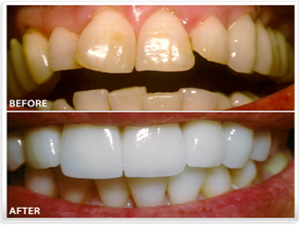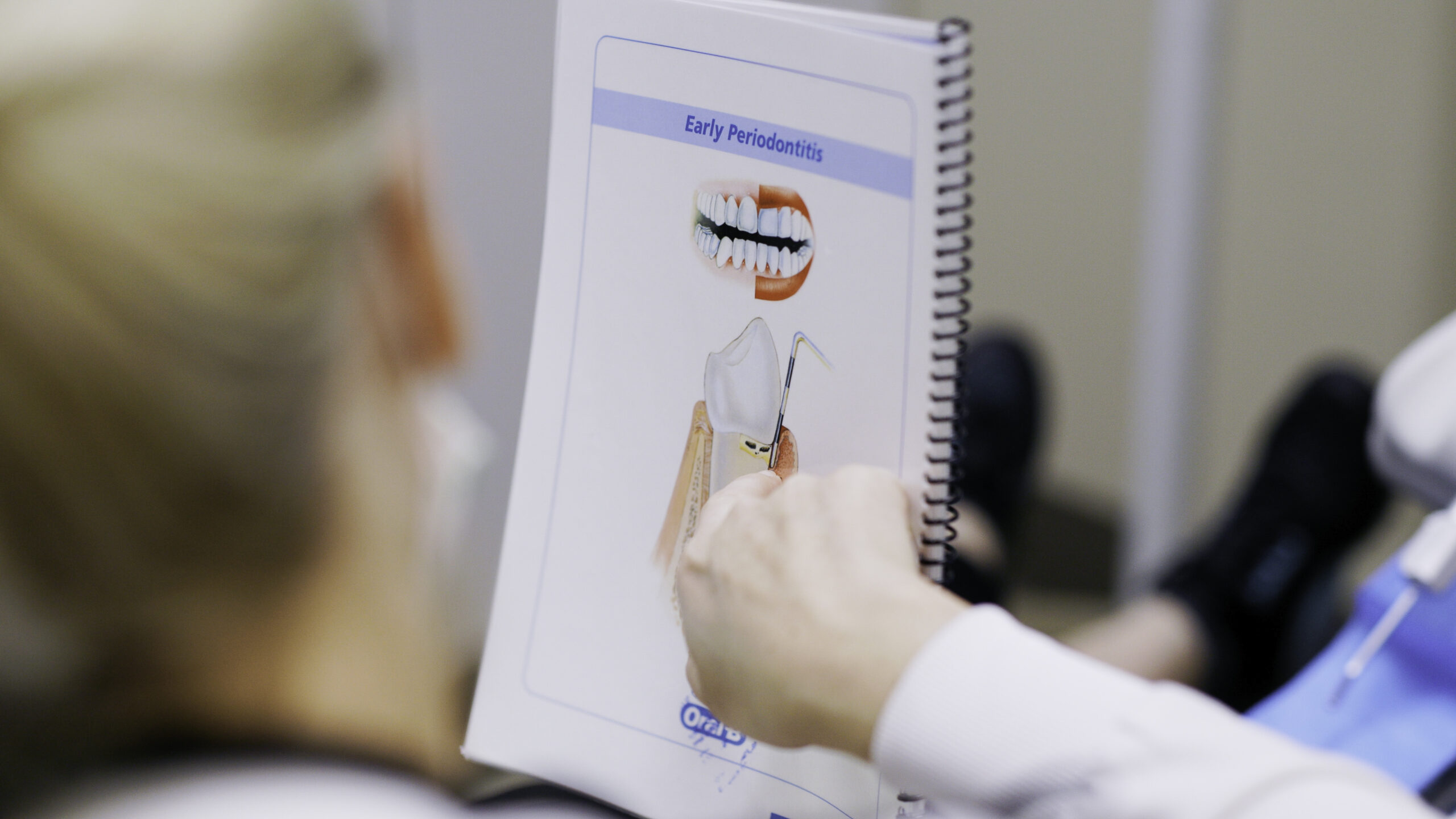How Long Do Veneers Last on Front Teeth?
 When wondering, “how long do veneers last on front teeth?”, it helps to understand what they are and the process of applying them. Dental veneers, which are usually made of porcelain or a composite resin, are wafer-thin "shells" that are custom-made to fit over the front surface of one or more teeth, similar to a false fingernail.
When wondering, “how long do veneers last on front teeth?”, it helps to understand what they are and the process of applying them. Dental veneers, which are usually made of porcelain or a composite resin, are wafer-thin "shells" that are custom-made to fit over the front surface of one or more teeth, similar to a false fingernail.
When Are Dental Veneers Used?
Dental veneers are typically used to improve the appearance of teeth that are stained or discolored, which can be attributed to a number of different factors. The antibiotic tetracycline, as well as a few other drugs, are well-known for causing tooth discoloration. Root canal treatments and an overuse of fluoride can also cause a tooth to change color, as can a heavy consumption of red wine and even tea.
Dental veneers are also used to quickly, effectively, and painlessly change the shape of one or more teeth that may be chipped, uneven, misaligned, or even worn down. They can also be used to close small gaps between teeth. Veneers are a nice intermediate option for people who want to change the shape or color of their teeth with more than what can be done with bonding, but the problems are not significant enough to need a crown. Additionally, veneers have a distinct advantage over crowns in that they require only a minimal amount of alteration to your natural teeth. When wondering, “how long do veneers last on front teeth?” keep in mind that you can also elect to wear dental crowns if you would like an alternative solution.
How Are Veneers Fitted?
After determining that you are an ideal candidate for veneers, we will take an impression of the tooth, or teeth, to be treated. The impression is then sent to a laboratory where the veneer will be made. When it comes back, a very tiny amount of tooth enamel, which is equivalent to the thickness of the veneer, is removed from the surface of your natural tooth. The veneer is then placed on the tooth and checked to make sure it is the right shape and color. Ensuring that the veneer fits perfectly often involves removing and shaping and trimming it one or more times. Once you are satisfied with how the veneer looks and feels, it will be bonded to your tooth.
A follow-up visit to check the placement and comfort is usually done after a couple of weeks.
The Benefits of Veneers
Because the shade of the veneer is carefully matched to your natural teeth, it is very difficult to differentiate them from your natural teeth. Porcelain veneers have an advantage over their resin counterparts in that they reflect more light and, therefore, appear more natural looking. Porcelain is also naturally more stain-resistant than tooth enamel and is thus less affected by coffee or red wine.
However, the benefits of dental veneers go beyond mere cosmetic considerations. This thin layer of material, bonded onto the underlying tooth, protects it from further damage. Nevertheless, this does not mean that the veneer will protect your tooth from cavities and decay any more efficiently than your natural enamel does. You will still have to adhere to a good oral hygiene routine that includes brushing your teeth at least twice a day, flossing once, and having regular professional checkups and cleanings.
One of the most commonly asked questions regarding dental veneers is:
How Long Do Veneers Last On Front Teeth?
With reasonable precautions, dental veneers can last anywhere from 10 to 30 years. While you can eat almost anything you like, we say "reasonable precautions" because dental veneers are not made of an indestructible material. Porcelain is a glass, and glass can be shattered if excessive pressure is applied to it. You are very likely to crack the veneer if you pry open a bottle cap with your teeth, chew on ice, or bite your fingernails. People who grind their teeth at night are well advised to wear a night guard.
In other words, porcelain veneers have the same strengths and weaknesses as a natural tooth and should be taken care of in exactly the same way.
Recent Posts
Are you unhappy with your smile? Small chips, gaps, or discoloration can make you feel self-conscious. Fortunately, composite resin veneers offer a simple solution. These tooth-colored coverings can transform your smile in just one visit.This comprehensive guide explains what composite resin veneers are and how they can benefit your oral health. We'll also cover the…
When it comes to enhancing your smile, both composite veneers and porcelain veneers are versatile options. Whether you're looking to correct discoloration, chips, or gaps in your teeth, veneers allow for a beautiful, natural appearance. But which type is the right choice for you? Our team at St. George Dental Care is here to provide…
Your smile is one of your most valuable assets, and maintaining it can significantly impact your confidence and overall well-being. When it comes to improving or restoring dental health, two popular options often come into consideration: veneers vs dentures. But which is right for you?At St. George Dental Care, we believe in empowering our patients…
Veneers are one of the most popular cosmetic dental treatments available today, offering a simple solution to transform your smile. Whether you're tackling discolored, chipped, or uneven teeth, this treatment provides a pathway to achieving a stunning, confident smile. At St. George Dental Care, our experienced team has helped countless patients achieve their dream smiles…


